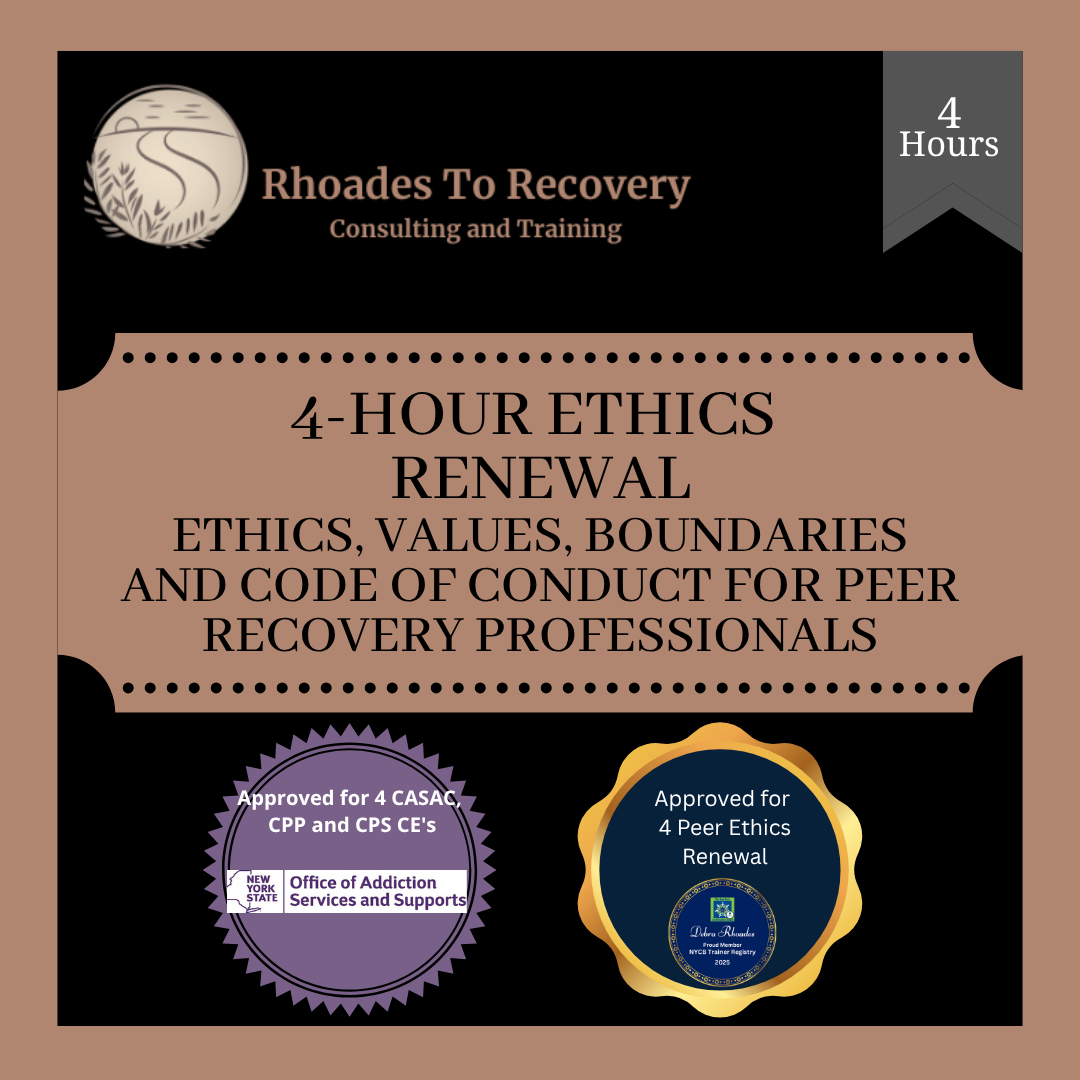4-Hour Peer Ethics Renewal:
Ethics, Values, Boundaries and
Code of Conduct for the
Peer Recovery Workforce
4-Hours
This training is offered live or virtually through Zoom. Deb Rhoades, a Best Practice Trainer and member of the InUnity Trainer Registry, will facilitate this 4-hour training. For participants attending via Zoom, it is essential to have both audio and video capabilities and to engage fully throughout the session.
This Rhoades to Recovery Training is approved by the InUnity-NYCB for CRPA (4 hours required) and CARC (3 hours required) Peer Ethics Renewal, NYS OASAS CASAC, CPP and CPS recertification CE's. Social Work CE's available upon request.
More About This Training
This 4-hour Ethics training will provide experienced Peer Recovery Professionals with the Peer Ethics continuing education requirement for the CRPA/CARC re-certification. Ethics can be defined as a code of standards for what is good, and the right thing to do verses what is bad, and the wrong thing to do. This training will provide a review of ethical considerations and boundary issues/dilemmas often faced by the Peer Recovery workforce in many different settings. The training will also include real life case scenarios and small group work/role plays utilizing the three step ethical decision making process.
Participants will:
- Identify how values, morals, and boundaries apply to ethical peer recovery support services.
- Identify at least 3 types of personal and professional boundaries and common boundary dilemmas encountered by Peer Recovery Professionals (e.g., dual relationships, conflicts of interest, etc.)
- Summarize at least 3 new ways to establish and communicate boundaries as a Recovery Peer Professional.
- Apply and practice ethical decision making utilizing real scenarios/ethical dilemmas often faced by Recovery Peer Professionals
- Summarize and compare the NYCB’s Code of Ethical Conduct and NYS Justice Center’s Code of Conduct and examine identify the potential risks and consequences to the coach, the agency and to the profession when ethical violations occur.





